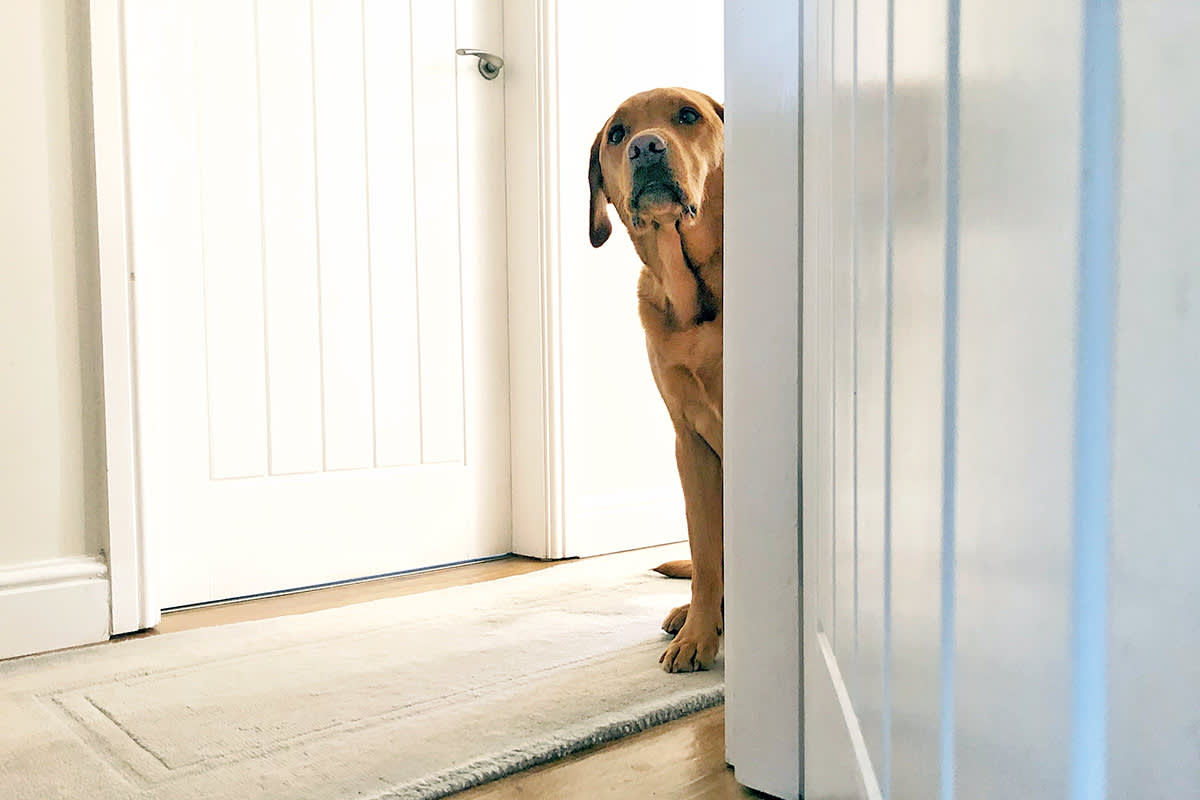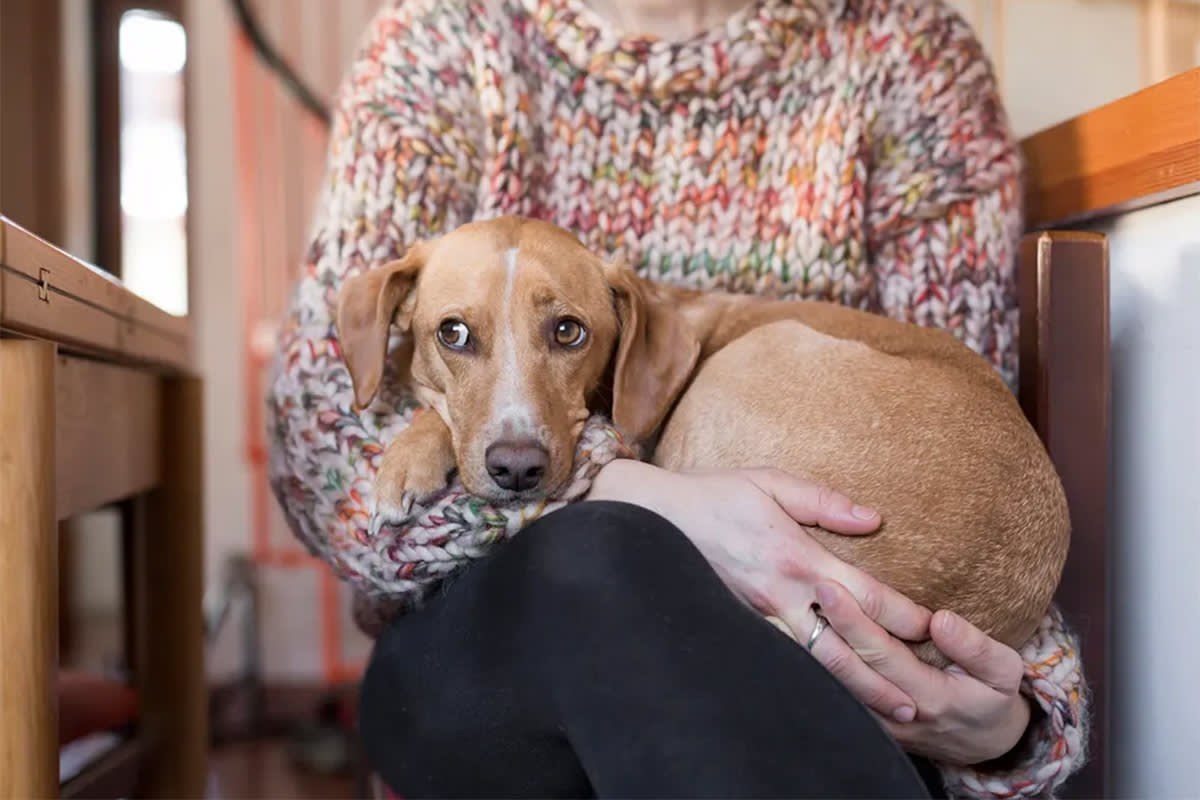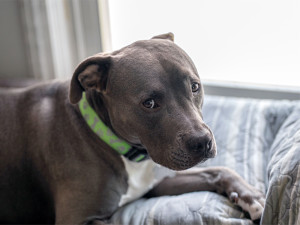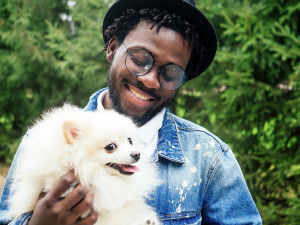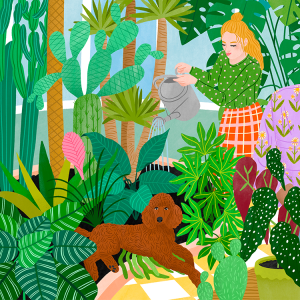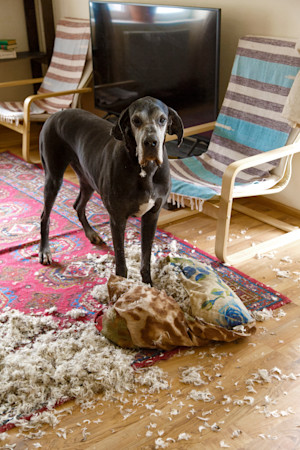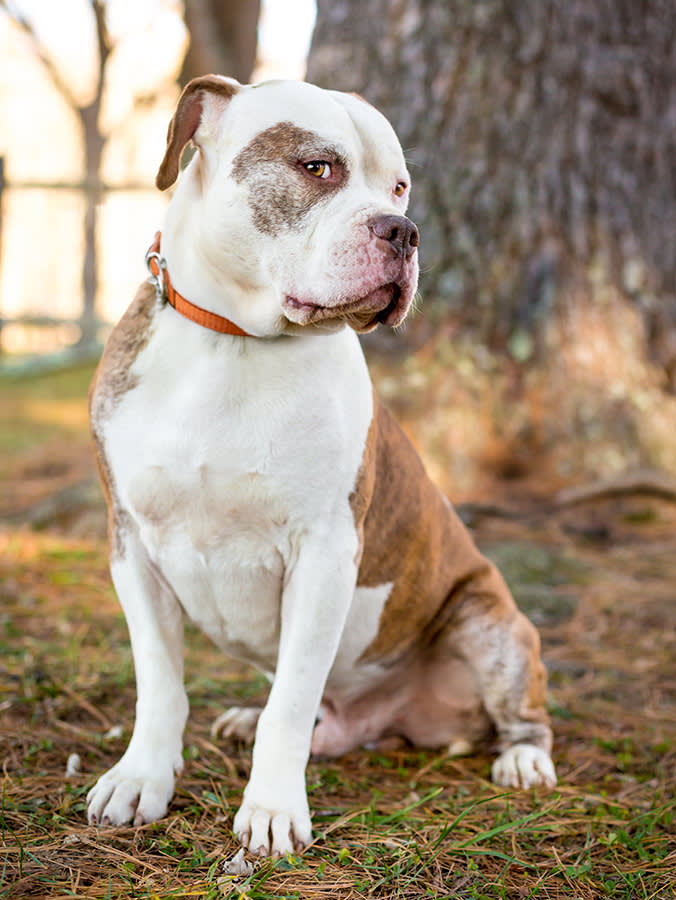
Share Article
We all know the face. It’s the one our dogs make when we come home and find them sitting in the middle of a bunch of tattered toilet paper, or on top of a ruined couch, or near an unwanted “present” on the rug. Puppy eyes mixed with “please don’t hate me” energy. As humans, we often assume it’s a sign of embarrassment — confirmation that they know they’ve done something wrong. Then again, aren’t our dogs the same creatures who lock eyes with us while licking their own butts? Does that really sound like something an animal capable of shame would do?
It turns out, our pups don’t feel emotions like guilt, shame, and embarrassment the way we do. So if you’ve ever come home to a pooch with a tucked tail, it’s not righteous remorse you’re witnessing. It’s something else entirely.
To fully answer this question, it helps to know the difference between primary and secondary emotions. Primary emotions describe our direct reactions to the world around us: sadness, anger, joy, and fear. Then, there are our secondary emotions — the feelings we experience in response to our primary emotions. For example, feeling happy about something we don’t think we should actually celebrate might cause us to feel guilt. Crying in front of other people with whom we don’t want to share our sadness might make us feel embarrassed.
“For dogs to experience embarrassment, they would have to be consciously aware that others see them in a way that is different from how they see themselves,” says Sylvie Savageopens in new tab, a human-canine relationship specialist and the author of the book U nleash: How to Evolve from Dog Training to Dog Parentingopens in new tab. Generally, she adds, that kind of self-reflection — “imagining the eyes of others and then judging ourselves through that imagined lens” — is more the purview of humans.

Dogs aren’t like us (at least where shame is concerned).
According to Savage, embarrassment generally grows out of the fear of social exposure, or of not fitting in. So, to determine whether our dogs feel “embarrassed” when we open the door and find them chewing on our favorite shoes, we’d need to consider two questions:
Do dogs actually care about human social norms?
Do they identify with how others perceive them or hold themselves to an idealized standard the way we do?
As creatures who live in the moment, dogs just do not think this way, Savage says. “And perhaps that’s one of their greatest lessons for us.” But if that’s the case, what does it actually mean when they appear ashamed?
Dr. Stefanie Schwartz, a board-certified veterinary behaviorist and founder of Civilized Petopens in new tab, agrees that shame is a “very relative term” that hinges on a number of variables like culture, religion, and social norms. These are all things that dogs don’t really think about.
“Feeling embarrassed requires an advanced thought process that goes something like, ‘Ooh, I shouldn't have done that. That's not what I learned at school, or that's not what my parents taught me, or I got caught in the act,’” Dr. Schwartz says. “That requires culture, and perception of consequence, and advanced thought processes. I don't think that dogs are quite capable of that.”
At the same time, Dr. Schwartz resists the idea that any of this means dogs are less “evolved” than we are. “I think that, too, is misleading, because I don't actually think we're all that evolved either,” she says. “I think that most of the behaviors that we do are far more primitive, and we give ourselves far more credit than we deserve.”
But they do care a lot about what we think.
When you punish your dog, and they tense up or tuck their tail between their legs, you’re not witnessing embarrassment. You’re seeing their despair over your reaction to them. Dr. Schwartz cautions against projecting any other, more human interpretation onto these behaviors. Instead, consider them a sign that your dog is anticipating punishment, being submissive to appease you, or both.
“People will say, ‘Oh, my dog gave me that because he knew he did wrong,’” Dr. Schwartz says. “No, he didn’t. He doesn’t even remember he did it, most likely. He knows that when you came, your face changed. Your face changed because you saw at a glance that he destroyed the couch. And now, you're glaring at him, and that took less than two seconds. That’s why the dog's giving you that face. Because he knows, ‘Crap, they’re not happy.’”
It can be hard to contain our reactions when we come home and find, say, a puddle of pee on the rug. But for the sake of our dogs, it’s crucial to keep as cool as possible. Whatever they’ve done, they don’t remember, and whatever reaction we have, they won’t know the cause. All they will know is that we’re angry.
It’s up to us to control the way we react.
“Punishment doesn’t teach anybody anything, and the only thing you’re going to teach your dog is to anticipate more punishment when you come home,” Dr. Schwartz says. “Then they’re miserable when you’re gone and miserable when you come back. So, what have you accomplished?”
Instead of punishing your dog when you come home to a mess, Dr. Schwartz advises putting your stuff down, greeting your dog calmly, and taking them for a walk. Then, you can start to think about what you can do better tomorrow to set them up for success. Maybe they need exercise before you go out, or maybe, if the behavior is both persistent and extreme, medication can help. Your vet can help you come up with a plan, but in the present, the goal is to keep your dog feeling safe and secure.
At the end of the day, Dr. Schwartz says, our human hang-ups don’t serve much purpose for other animals. “We are so far removed from the natural world that we’re disconnected from natural functions and natural behaviors,” she says. “So, we project guilt and shame and embarrassment onto other beings who are natural, and part of the natural world.”
In other words, as tempting as it might be to anthropomorphize our dogs, there’s far more to learn from taking them as they are. After all, imagine how wonderful life would be if we could all forget what it’s like to be embarrassed — even just for a day.
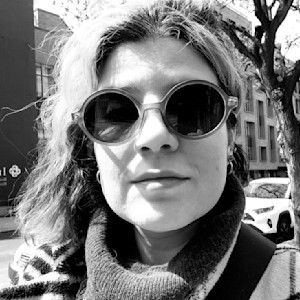
Laura Bradley
Laura is a New York-based experienced writer and mom of two rescue pups. Her work has appeared in Slate, Vanity Fair, Daily Beast, The Washington Post, The Atlantic, Yahoo! News, Vulture, Grazia Magazine, and more. When she is not writing or walking the pooches, you will probably find her in the community garden.
Related articles
No, Your Dog Does Not Feel Guilt—Here’s What Those “Regretful” Looks Really Mean
Your pup doesn’t actually feel bad about eating your pizza.
![Man holds his fluffy white dog outside.]()
AI Discovers 5 Different Dog Personalities—Which One Is Your Pup?
A new study says your dog could fall into one of these categories based on their reactions to real-life events.
![Bodil Jane illustration, someone waters a garden with a brown dog in it]()
Nature vs. Nurture: Does Your Parenting Style Influence Your Pet’s Behavior?
Your personality may actually have something to do with your pet’s personality.
Do Dogs Experience Anxiety?
No one—especially your pup—likes that uneasy feeling.
![Funny Great Dane dog making a mess at home.]()
A New Study Says 99% of Dogs Have Behavior Issues—These Are the Most Common
Is your pup one of the naughty ones?
